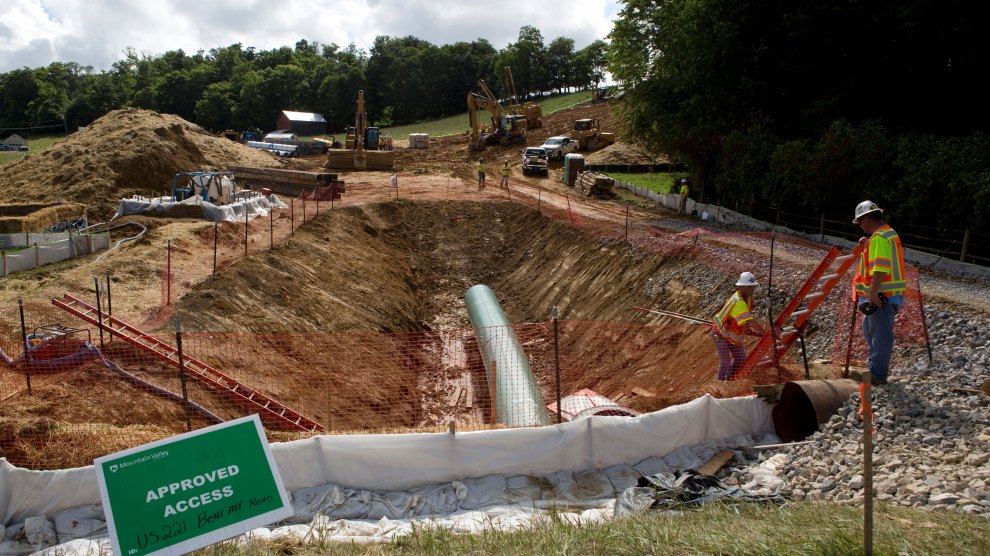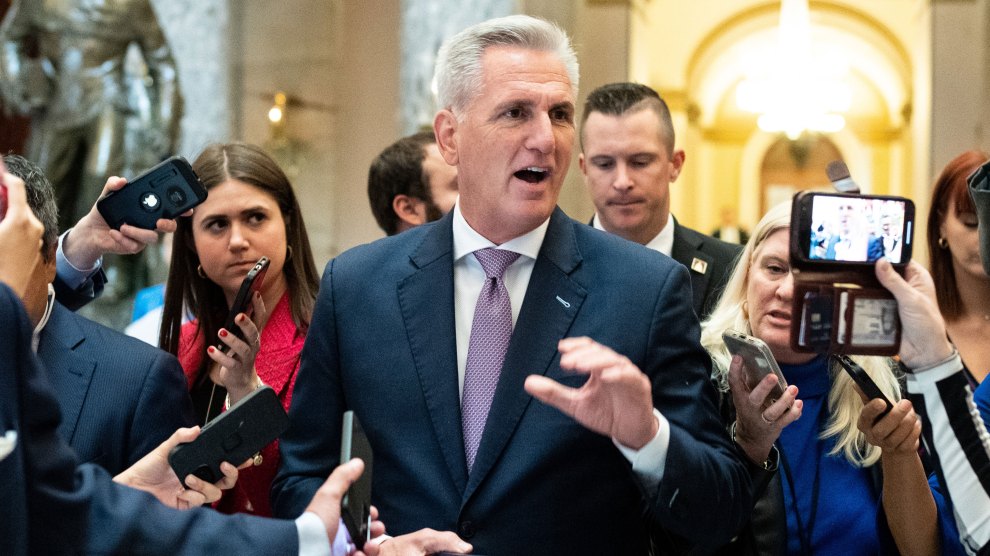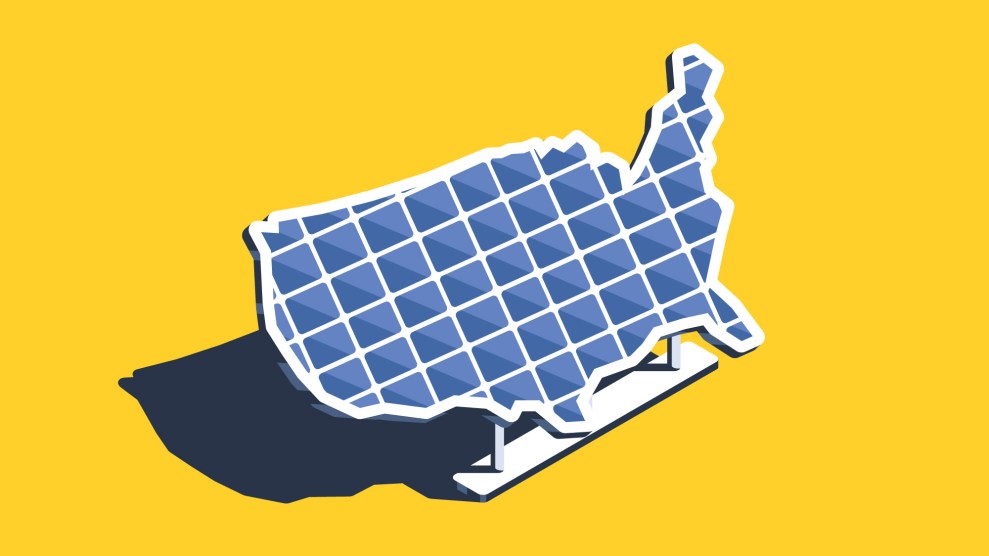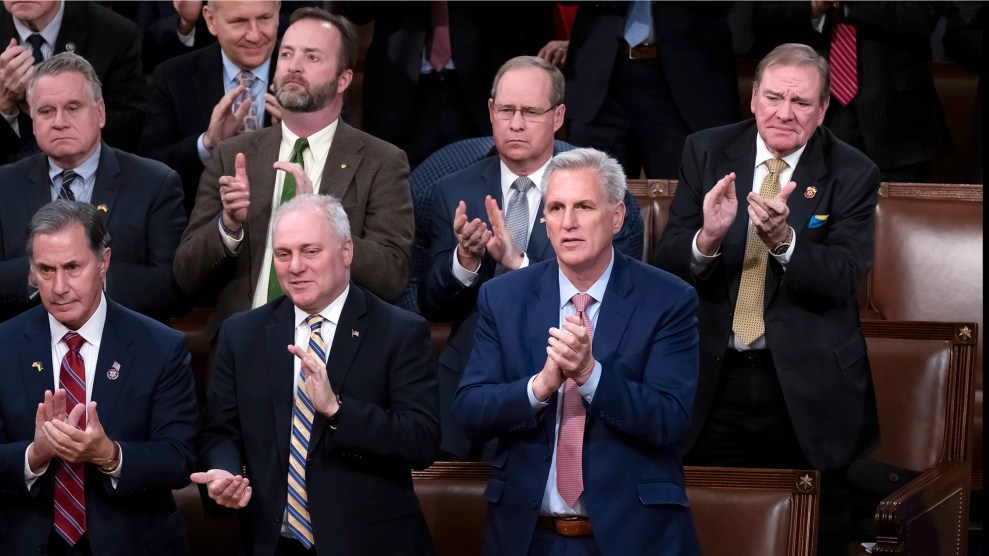
A construction crew bores a tunnel for a section of the Mountain Valley Pipeline in Roanoke County, Virginia.Heather Rousseau/The Roanoke Times/AP
This story was originally published by the Guardian and is reproduced here as part of the Climate Desk collaboration.
The deal to raise the US debt ceiling will have significant ramifications for the climate and nature, by fast-tracking a controversial gas pipeline in West Virginia and limiting the scope of environmental reviews for future developments, environmentalists have warned.
The agreement struck between Joe Biden and Republicans who control the House of Representatives states the Mountain Valley pipeline is “required in the national interest” and should be issued its necessary permits within 21 days and be shielded from legal challenge by those who object to it.
Environmentalists reacted in outrage at the deal, arguing the 300-mile pipeline, which will bring fracked gas from West Virginia to southern Virginia, will endanger hundreds of waterways, threaten landscapes including the nearby Appalachian trail, and worsen the climate crisis.
“Singling out the Mountain Valley pipeline for approval in a vote about our nation’s credit limit is an egregious act,” said Peter Anderson, Virginia policy director at Appalachian Voices, a campaign group that has charted hundreds of environmental violations by the project across the two states. “By attempting to suspend the rules for a pipeline company that has repeatedly polluted communities’ water and flouted the conditions in its permits, the president and Congress would deny basic legal protections, procedural fairness, and environmental justice to communities along the pipeline’s path.”
The pipeline was recently provided a key approval by the federal government to go through a stretch of forest but is currently stymied by court action that has dogged it for years. Mountain Valley has just 20 miles left to complete but is several years behind schedule due to opposition from green groups and nearby residents who risk having their land taken for the project.
However, Joe Manchin, the West Virginia senator, coal baron and the Senate’s leading beneficiary of campaign donations from gas pipeline interests, has vigorously lobbied for the pipeline’s construction and appears to have prevailed in his quest. Manchin, a centrist Democrat, is considered a valued swing vote in an evenly divided Senate.
“I am pleased speaker [Kevin] McCarthy and his leadership team see the tremendous value in completing the [Mountain Valley pipeline] to increase domestic energy production and drive down costs across America and especially in West Virginia,” Manchin said in a statement that did not mention Biden. “I am proud to have fought for this critical project and to have secured the bipartisan support necessary to get it across the finish line.”
The White House has framed the debt ceiling deal as one that has protected Biden’s key climate achievements, such as the numerous provisions for clean energy support in last year’s Inflation Reduction Act, which Republicans were keen to strip away in negotiations.
But the agreement does not include any measures to accelerate the expansion of electricity transmission, a crucial factor in whether the shift to renewables will actually materialize, while acceding to Republican demands to curtail the environmental reviews of developments such as oil and gas pipelines.
Under the deal, reviews under the National Environmental Policy Act, the US’s first national environmental law, will be limited to just two years for federal projects.
Environmental groups, already angered by Biden’s ongoing embrace of large fossil fuel projects, such as the recently approved Willow oil drilling operation in Alaska, said these provisions mean that Democrats should block the debt deal when it is voted upon in Congress this week.
“President Biden made a colossal error in negotiating a deal that sacrifices the climate and working families,” said Jean Su, energy justice program director at the Center for Biological Diversity. “Congress should reject these poison pills and pass a clean debt ceiling bill.”








